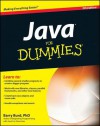Dor Does Books
Oh, hai! I read books, then I write down what I think of them.
I'm definitely in Team Yay - The Three by Sarah Lotz

[This book was provided to me for the price of none of your local currency by the publisher. Many thanks to Hodder and Stoughton for this act of generosity, and to NetGalley for being my pusher.]
The Three has been proving something of a divider of opinion in my review feed. Some love, some hate. I love. In fact, The Three is in good shape to be this year's Gone Girl, assuming this year's Gone Girl isn't Gone Girl again. The Three is excellent ... provided you get on the epistolary style.
Presented largely as a book within a book, The Three recounts - via the medium of interviews, memoir extracts, and the like - the events of and those which followed Black Thursday, the day four planes near simultaneously crashed on four continents killing almost everybody on board. Only three children were recovered alive. Among the last recorded messages are one from a passenger, Pamela May Donald:
They're here ... The boy. The boy watch the boy watch the dead people oh Lordy there's so many ... They're coming for me now. We're all going soon. All of us. Pastor Len warn them that the boy he's not to--
We, the reader, are given accounts which build up a picture of what happened. This is firmly in the land of after the event so there's an amount of "even after what happened later" and "I don't think then that he realised". It stays the right side of tension building for the most part, and is skilful in its rendering of different styles of communication. Pamala's frenemy Reba could have stepped out of Stephen King novel - Needful Things, probably - while the sections of an unpublished memoir by the British Uncle (and guardian) of one of The Three is (amusingly) pitch-perfect in its tone.
This style has a knock on effect on the story - such as it is. Because we're hearing the story from some time after everything has happened, and because there is a a subtle assumption that the reader is part of the book's interior world and thus *knows* what's happened, there's no protagonist to root for, or danger they have to overcome, or consequences if they fail. Instead there's a winding trail of interpretations, of conspiracy theories, of faith, and of humanity. This is a book which unfolds, fills in the details of an event it assumes you already know about. It is, from an academic level, very well done. The "big reveal" also has a tremendous cleverness about it and isn't afraid to bury it in a single line of dialogue.
I do have complaints, of course I do, but I don't feel they particularly detract from the book. I found it, as a whole, rather thin in content although it more than makes up for it in substance: there was a moment at about 60% where I realised not that much had actually happened. Crucially, if you don't like the style, I don't think you'll find anything here to make up for that.
I do like a book which makes the effort to do things differently, even if it doesn't manage. The Three manages with aplomb: it's skilful, intelligent, and I fully expect to see it everywhere this summer (and deservedly so): 4.5 stars.
(And if you do like the epistolary style, I urge you to go and read James Smythe's The Testimony which does a similar thing except with talking heads rather than written up documents. It's also very good.)








 7
7
 2
2